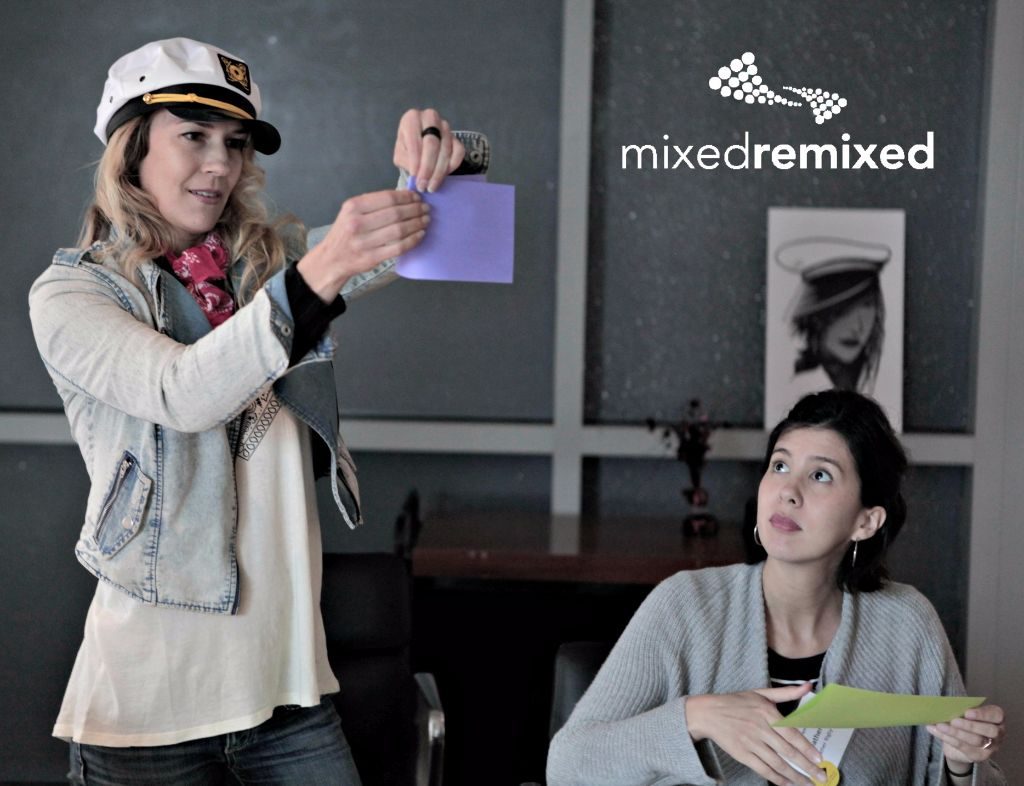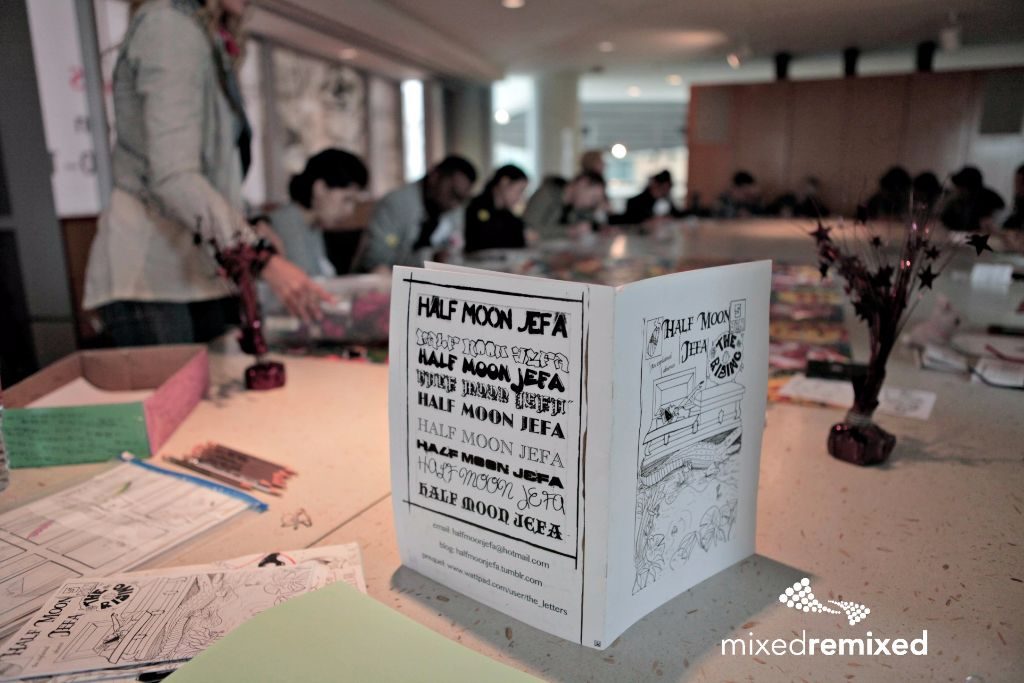We asked Christina Guillen who led the Microaggression Zine Workshop at the Mixed Remixed Festival about her experience. The workshop was a hands-down hit. We are looking at the possibility of doing this workshop again during the year so that more of our Festival followers can experience this. Plus I want to do the workshop too!-Heidi Durrow, Festival Founder
“Festival attendees filled the room. I introduced my background as Mexican and white and gave a definition of microaggression. I explained my story of first encountering the term. I shared my anger and the diffusion of pain upon hearing the word. I proposed to our group we give our microaggressions a shape, smell, or feeling. I demonstrated releasing a rough styrofoam ball on the table. The ball bounced and rolled away. I explained once we can see our microaggression outside of ourselves we can disidentify and observe it. This gives our power back.
 I asked them to offer their own microaggressions. They spoke up shyly at first, but eventually there were enough responses to see an array of reactions. Some spoke with humor others let their anger and frustration be heard. It got pretty intense but I was prepared. I let them know it was a safe place, we’re in the same boat. We have a right to feel however we feel. I think the validating was really needed. Even though I’d said I was not the microaggression expert but more of a conversation facilitator, people still looked to me for validation of their feelings, to ask whether their experience was a valid microaggression. Some got tangled up with terms so we talked about what underlies the term microaggression. Our honest feelings underneath it all are telling us something doesn’t feel right. We want to name it because we want to disidentify from it. We went back to the beginning—give the feeling a shape and disidentify.
I asked them to offer their own microaggressions. They spoke up shyly at first, but eventually there were enough responses to see an array of reactions. Some spoke with humor others let their anger and frustration be heard. It got pretty intense but I was prepared. I let them know it was a safe place, we’re in the same boat. We have a right to feel however we feel. I think the validating was really needed. Even though I’d said I was not the microaggression expert but more of a conversation facilitator, people still looked to me for validation of their feelings, to ask whether their experience was a valid microaggression. Some got tangled up with terms so we talked about what underlies the term microaggression. Our honest feelings underneath it all are telling us something doesn’t feel right. We want to name it because we want to disidentify from it. We went back to the beginning—give the feeling a shape and disidentify.
I passed around a bucket of shapes (screws, sandpaper, scissors, a zipper, a crab’s pinchers, a snarling chihuahua, etc). Each person kept one to represent their feeling as they filled out a worksheet about microaggressions. Later, I showed how to fold a single sheet into a small book. Afterward, the group transferred their ideas from the worksheet onto the zine book. They created with markers, stencils, and drawings. The result was a zine that physically showed their experience outside of themselves. Titles ranged from “You don’t like beans?” to “Don’t touch my hair!” to “Zen in the face of microaggression.”
 The actual creative process allowed us to keep the conversation going while our hands were occupied. We talked about that many minorities transcend their experiences by doing creative projects. Myself and another woman wrote a novel, another sings, and all of us made a zine. We talked about seeing the positive angle of microaggressions, we found ways it was making all of us better more loving people.
The actual creative process allowed us to keep the conversation going while our hands were occupied. We talked about that many minorities transcend their experiences by doing creative projects. Myself and another woman wrote a novel, another sings, and all of us made a zine. We talked about seeing the positive angle of microaggressions, we found ways it was making all of us better more loving people.
At the end I suggested leaving their zine in their car as a communication tool. Several said they’d like to do so. I was overjoyed with the smiles, hugs, gratitude, and relief I felt in the room. It was an amazing feeling to validate and empower so many people! I think I’m still glowing.”-Christina Guillen
Christina Guillén is a diversity speaker, teacher, writer and the creator of Half Moon Jefa, the Mixed People’s Superhero. Her historical fiction novel and M.F.A. in Creative Writing focus on identity, feminism, and indigineity vs. colonialism. Christina will lead an exciting hands-on zine workshop to flirt with our perspectives on the topic of microaggressions. Find out what trucos she’s up to at halfmoonjefa.tumblr.com.